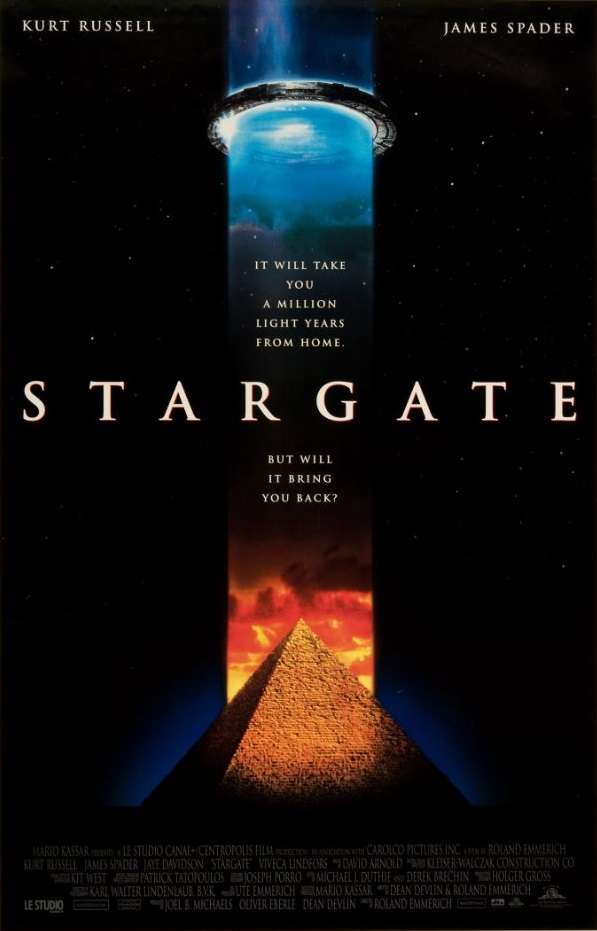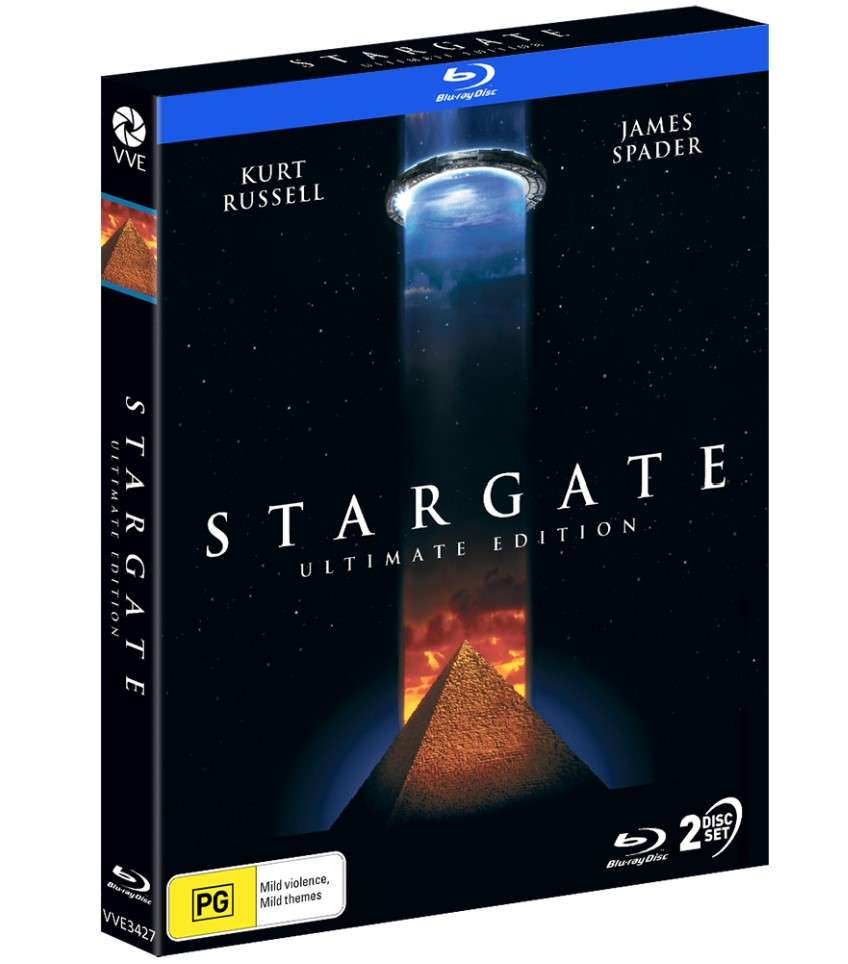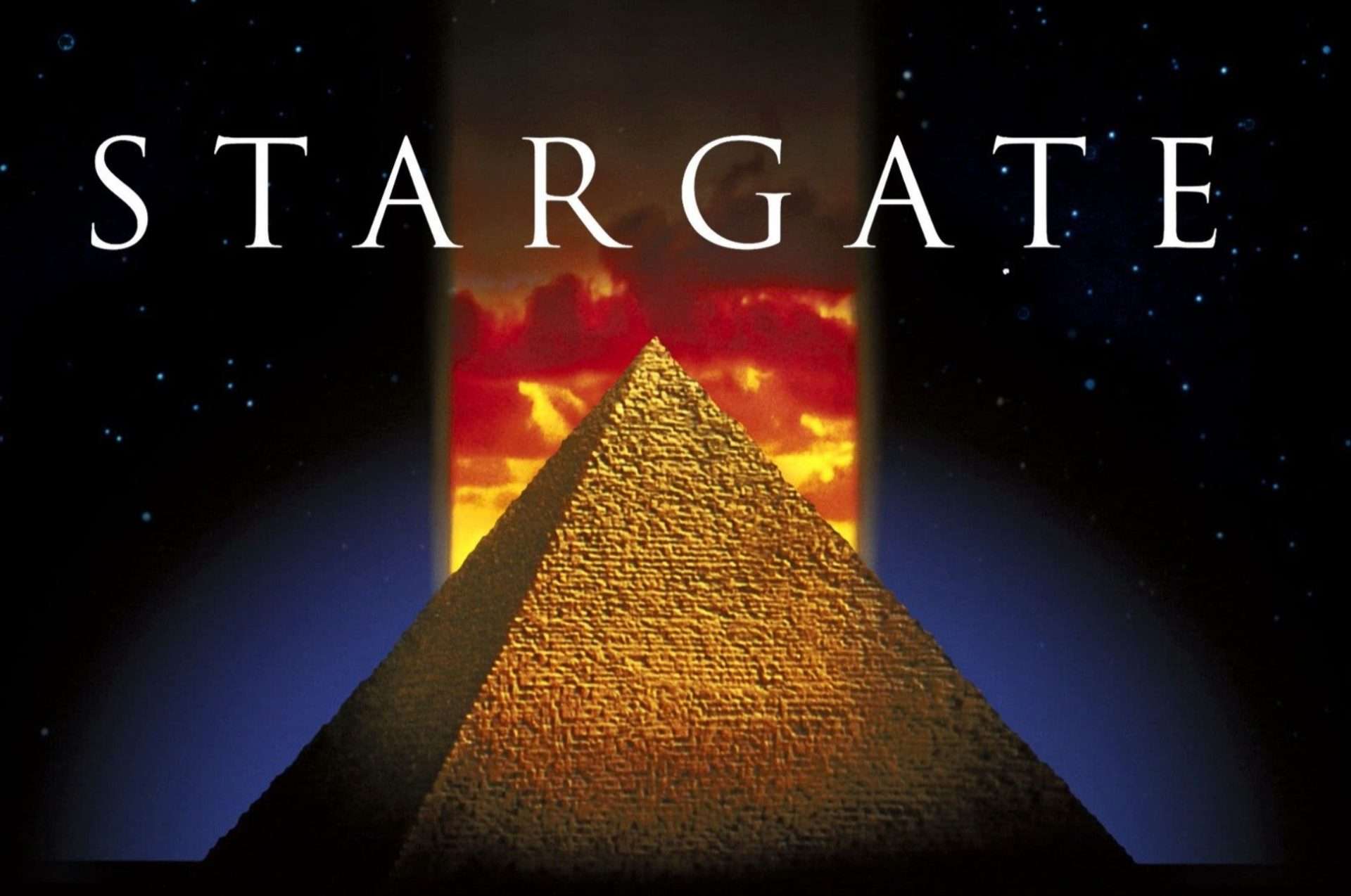In 1928 Giza, Egypt, an incredible, large artifact is discovered by a group of archaeologists. We then jump to the present day and are introduced to Dr. Daniel Jackson (James Spader), an archaeologist knowledgeable about ancient Egypt, including translating the dialect. Dr. Jackson is broke, struggling to keep a job, and was recently evicted from his home. Thankfully, he’s approached by an older woman named Catherine (Viveca Lindfors), who offers him a job. All that is required of him is to translate a large stone tablet in a top-secret military base. Curious and out of other options, he agrees.
When Dr. Jackson gets to the base and sees the stone tablet, a series of exciting revelations occur, leading to them finding they can enter a new world through a portal called the ‘Stargate’. The next step is to activate the Stargate and enter it to see where it leads and what kind of new world is on the other side. Leading the exploration team is Colonel Jonathan ‘Jack’ O’Neil (Kurt Russell). Dr. Jackson will accompany them, and once through the Stargate, he will need to find and translate symbols on the other side to enable them to return home. Through the Stargate they discover a new world filled with humans who still live like Ancient Egyptians, forced to obey and submit to their ruler, the god Ra. Daniel also discovers that key symbols are missing, making it impossible to return home.
Stargate is a sci-fi film co-written and directed by Roland Emmerich, who is known for delivering brainless disaster films such as Godzilla and 10,000 BC as well as many movies with solid sci-fi aspects (Independence Day or Moonfall). Once again, Emmerich has tackled a project that carries fresh ideas and new concepts.
There were multiple positive elements. The costumes seen on many Egyptian characters throughout the film were highly creative and stood out. The same could be said about the film’s musical score from composer David Arnold, and it strongly resembled something you might hear in a Star Trek film. I also enjoyed the casting choices of Kurt Russell and James Spader, even if the pair’s chemistry is somewhat lacking during crucial moments. Ra (Jaye Davidson), as the film’s villain, was also a nice touch, but the voice effect used for this character shows its age when viewing in the present day.
While Stargate starts strongly and the sci-fi aspects are engaging and different, the story and pace alter once our leads enter the Stargate. Everything slows down, with subplots that feel either forced or unnecessary. This includes a whole subplot of Daniel seeking symbols only for another issue to arise, stopping our leads from returning home. It’s almost as if this film carries a great concept but continues to stick to formulas in its plot, including a villain to defeat and other hurdles for our leading heroes to overcome.
[mailerlite_form form_id=1]Overall, Stargate delivers an excellent concept for sci-fi buffs across the galaxy. There hasn’t been a film like Stargate, and it’s no surprise that the good premise spawned a hit TV series known as Stargate SG:1. Visually, the film set designs are terrific, and the same could be said about the costumes. David Arnold’s score is a perfect touch and reminded me of other sci-fi films like Star Trek. While the lead casting is pretty good, the chemistry between Kurt Russell and James Spader sometimes seems bland and unfitting, and details surrounding the subplot also feel cliché and drag the film on longer.
6.5/10
7th January 2024
Written by Peter Walkden




WALKDEN ENTERTAINMENT
PODCASTS ARE AVAILABLE!


0 Comments